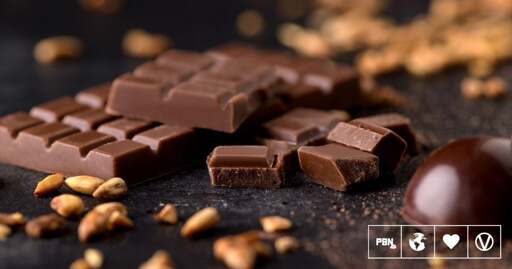I don’t understand, I thought Hershey’s was already a thing?
I though thus was what carob chocolate was supposed to be? What happened to that?
It tastes like shit
I remember quite liking it, haven’t had a carob bar since I was a kid though. I might have to buy a bar or two and test that memory.
Only suitable for dog treats in my experience.
and without heavy metals sounds like a win all the way around
Is it heavy metal free? It comes from the processing machines, not the beans. The sunflower cacao could have heavy metals too.
Very unlikely from these first labs because they are being careful, but other factories could use machines with heavy metals.
https://www.consumerreports.org/health/food-safety/lead-and-cadmium-in-dark-chocolate-a8480295550/
The researchers found that cacao plants take up cadmium from the soil, with the metal accumulating in cacao beans as the tree grows. That’s similar to how heavy metals contaminate some other foods.
But lead seems to get into cacao after beans are harvested. The researchers found that the metal was typically on the outer shell of the cocoa bean, not in the bean itself. Moreover, lead levels were low soon after beans were picked and removed from pods but increased as beans dried in the sun for days. During that time, lead-filled dust and dirt accumulated on the beans. “We collected beans on the ground that were heavily loaded with lead on the outer shell,” DiBartolomeis says.
Because of the different ways that cadmium and lead get into chocolate, addressing the contamination requires different solutions.
For lead, that will mean changes in harvesting and manufacturing practices, says Danielle Fugere, president of As You Sow. Such practices could include minimizing soil contact with beans as they lie in the sun, and drying beans on tables or clean tarps away from roads or with protective covers, so lead-contaminated dust won’t land on them. Another option is finding ways to remove metal contaminants when beans are cleaned at factories, Fugere says.
Solving for cadmium is trickier, though it is possible, DiBartolomeis says. Carefully breeding or genetically engineering plants to take up less of the heavy metal could help, though that could take several years. Other potential options include replacing older cacao trees with younger ones, because cadmium levels tend to increase as the plants get older, and removing or treating soil known to be contaminated with cadmium.
Oh great, sunflower seeds are high in cadmium too.
"Another reason to eat sunflower seeds in moderation is their cadmium content. This heavy metal can harm your kidneys if you’re exposed to high amounts over a long period.
Sunflowers tend to take up cadmium from the soil and deposit it in their seeds, so they contain somewhat higher amounts than most other foods."
Decolonise chocolate or smth like that
Also to lower the carbon footprint of chocolate as it is one of the of the sinful foods.
Yes, but the earth system is neither a deity nor a person.
I heard about this stuff on NPR. Sunflower seeds? That’s so cool!







